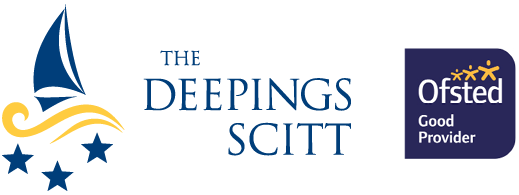Resources

Resources and Links
Once on the programme, trainees can use their username and password to log on to SharePoint to access all SCITT resources and documentation.
How to Apply
https://getintoteaching.education.gov.uk/how-to-apply-for-teacher-training
The ‘Get School Experience’ Programme
https://schoolexperience.education.gov.uk/
Student Loan Company
http://www.slc.co.uk/
The Deepings School Website
http://www.deepings.anthemtrust.uk/
Ofsted Report
View Here
Writing your personal statement for ITT applications
Advice from Harinder Boughton, the SCITT Director
Your application form is your chance to make a good first impression and your Personal Statement is a vital element. In my role, I read literally hundreds of applications for teacher training every year and your statement is my sole insight into you at the point at which I am deciding whether or not to invite you to interview.
I read your personal statement first.
Fabulous degrees are a bonus but I am looking for candidates with a passion for teaching, for children, for their subject and for whom ITT is a real commitment. This may be evidenced through your hobbies – are you a Scout Leader? Have you done any voluntary work with children? What time have you spent in schools recently? Do you have a clear understanding of the educational phase / subject for which you are applying? I don’t want to interview applicants who think they might enjoy being a teacher but actually don’t know what this might entail. If you are changing careers then tell me about the reasons for this decision, your employment experience and how this is relevant to working in a school. tell me about your transferable skills.
How much do you wish to teach? This ambition should not be a new or passing fancy. How did your interest in training to teach develop? What have you done to pursue it? I need to see enthusiasm… because so will your students!
If you are struggling to get started then start with your strengths, focus on your enthusiasm for the course and talk positively about yourself.
And don’t forget!
We are all teachers of literacy regardless of phase or subject; spelling, grammar and punctuation are important. An accurate application form tells me that this matters to you, that you can pay attention to detail. As with all parts of your application, make sure that as many people as possible proof read your personal statement. Nothing says ‘unprofessional’ like a personal statement full of typos or grammar mistakes. No-one wants a teacher whose personal literacy is a concern. Also, although you may think you have expressed yourself very clearly, other readers may be able to highlight sentences or words that are incorrect, irrelevant or which could be more clearly expressed. A good personal statement passes through many drafts, so make sure you give enough time to the writing and re-drafting process.
Ensure you keep close to the word count – not too many and not too short.
We look forward to hearing from you, good luck!
Take the first step on your teaching journey
Ready to Get Started?
If you have the passion for enhancing the future of children and young people, empowering them through the transformative power of learning then teaching could be your calling.

